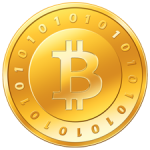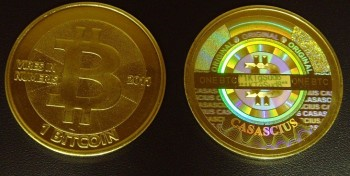
The Bitcoin Foundation took a decisive turn in its strategy for defending Bitcoin three weeks ago when the organization wrote its reply to a cease and desist order from California’s Department of Financial Institutions. Rather than meekly asking the government how the nonprofit advocacy group was acting as a money transmitter, the organization delivered a seven-page reply in which it laid out an argument that not only was the organization itself not doing selling bitcoins in any way, but in fact even if the organization was selling bitcoins the act does not constitute money transmission under present California law. After making this argument, the Foundation went so far as to specifically “request that your office issue an opinion that, for the reasons explained above, the sale of a bitcoin is not regulated under the California Money Transmitter Act.” Now, Foundation legal counsel Patrick Murck has made his second move.
Two months ago, Liberty Reserve, an alternative payment processor known for its very weak know-your-customer policies, was shut down and its owners arrested by the United States government. In a press conference following the shutdown, FinCEN attorney Prret Bharara focused heavily on “anonymity” as a major reason behind Liberty Reserve’s shutdown, and weeks later a FinCEN Notice of Finding criticized the entire category of irreversible digital payment systems. “The fact that transactions are irrevocable, meaning that they cannot be reversed or refunded in the event of fraud, makes it a highly desirable system for criminal use and a highly problematic one for any legitimate payment functions. Revocability protects users and merchants from fraud and is a common feature of legitimate payment systems,” the report claimed. Many have taken these words as a sign that, since the currency has a considerably degree of anonymity and is almost completely irreversible, Bitcoin is next. FinCEN director Jennifer Shasky Calvery came out to reassure Bitcoin users and investors, saying that legitimate businesses that follow the relevant laws “have nothing to fear from Treasury”, but even still many in the digital payments space seek a stronger reassurance.
It is under this background that Murck has sent another request for clarification, this time to US federal regulator FinCEN itself. The subject of the letter is a notice of proposed rulemaking announcing a set of steps that FinCEN intends to take in order to shut down Liberty Reserve transactions around the world. The actions are targeted around Liberty Reserve itself; the first action listed is that “Section 1010.660(b)(1) of the proposed rule imposing the special measure would prohibit covered financial institutions from establishing, maintaining, administering, or managing in the United States any correspondent account for or on behalf of a foreign bank if such correspondent account is being used to process transactions involving Liberty Reserve, including any of its branches, offices or subsidiaries.” However, especially in the context of the Notice of Finding, the Bitcoin Foundattion is concerned that “although the special measures contemplated by the Proposed Rule are explicitly targeted at Liberty Reserve, many of the statements in the Proposed Rule and Finding could be misread to apply more broadly to transactions involving virtual currencies generally.”
The core arguments that the letter makes are the following:
- Maintaining consistent definitions is important. Quoting the letter: “For example, the Finding describes Liberty Reserve as a “web-based money transfer system, or ‘virtual currency.’” In doing so, FinCEN infuses virtualcurrency with a new definition – namely, a web-based money transfer system. This definition of virtual currency is inconsistent with the definition FinCEN issued in its March 18, 2013Guidance … By equating virtual currency with “web-based money transfer system” in the Finding and the Proposed Rule, FinCEN risks muddying the analysis required byits own Guidance.” The letter instead recommends that FinCEN use its own language from its own March 18 guidance, perhaps calling Liberty Reserve the administrator of a centralized virtual currency system.
- Anonymity is not necessarily criminal. Once again from the letter: “The Finding and Proposed Rule broadly state that ‘Liberty Reserve’s system is structured so as to facilitate money laundering and other criminal activity,’ and cite, among other things, theanonymity of the system as evidence of that illicit structure. The Bitcoin Foundation is concerned about the broad use of the term ‘anonymous’ and about FinCEN’s generalcharacterization that all ‘anonymity’ is designed to facilitate money laundering and other criminal activity.” Here, the foundation is taking a brave turn, not taking the usual strategy of defending Bitcoin by claiming that it is not anonymous, but rather arguing that even anonymity itself is not necessarily criminal. This is a highly beneficial strategy for Bitcoin advocacy going forward; if Bitcoin becomes more anonymous in practice through developments like Zerocoin or decentralized mixers, the defense that “Bitcoin isn’t that bad” may not cut it anymore. Questioning what is bad in the first place, on the other hand, stands a solid chance no matter what the changes in technology.
- Neither is irreversibility. Contrary to what the Notice of Finding implied, irreversibility is a valuable feature for a payment system to have and, as Jon Matonis argues, it is in fact necessary for a number of applications. Matonis (not quoted in the letter) writes: “As an industry that suffered a high degree of customer disputes, online gambling is instructive because when certain customers lost in the casino and ‘changed their mind,’ it became necessary for these merchants to accept only payment methods with finality.”
Source : http://bitcoinmagazine.com




